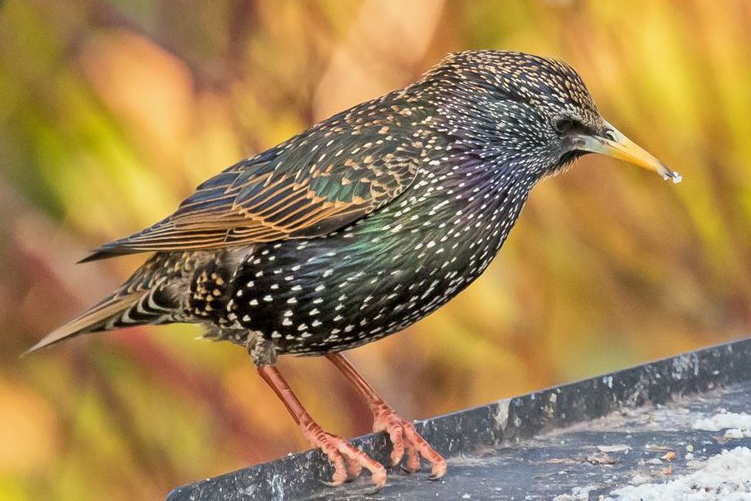It's not only the abundance of food that attracts wild animals to cities.
充足的食物并不是吸引野生動物遷入城市的唯一要素。
They're usually several degrees warmer than the surrounding countryside.
城市的氣溫通常比郊外略高幾度。
And here in Rome, in December, one animal is taking full advantage of this extra heat.
十二月的羅馬,有一種動物充分利用著這絲溫暖。
And it's leaving it's mark.
在城市中留下自己的印記。
In a single winter's day, ten tonnes of its droppings rain down on the city.
冬季的每一天,都有十噸糞便雨降臨這座城市。
Starlings. In the evening, they come back to the warmth of the city after feeding in the neighbouring countryside.
歐椋鳥。夜晚,它們在郊外攝食后返回溫暖的城市。

They must return to their roosting trees.
它們必須返回棲息地。
But the first to do so are at the highest risk of being caught by birds of prey.
但第一個回來的最有可能被猛禽襲擊。
So, they wait for others to arrive. There's safety in numbers.
所以它們等候大部隊一同抵達(dá)。數(shù)量越多就越安全。
As daylight fades, the sky fills with a staggering one million starlings.
天光漸暗,城市上空被數(shù)百萬只歐椋鳥占據(jù)。
And then follows one of nature's great spectaculars.
上演一場蔚然壯觀的自然演出。
How, or indeed why, they perform these marvellous aerobatics, we still do not fully understand.
它們是如何,又是為何成群起舞,至今我們還無法完全理解。
Eventually, en masse, they brave the descent and fill the branches of their favourite trees.
最終,它們會成群結(jié)隊地降落,挑選最喜歡的樹枝落腳。











